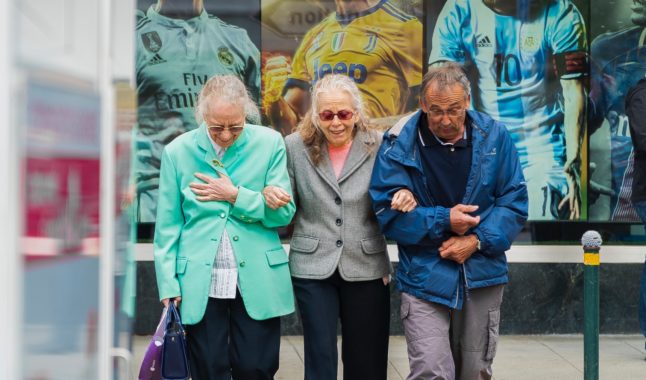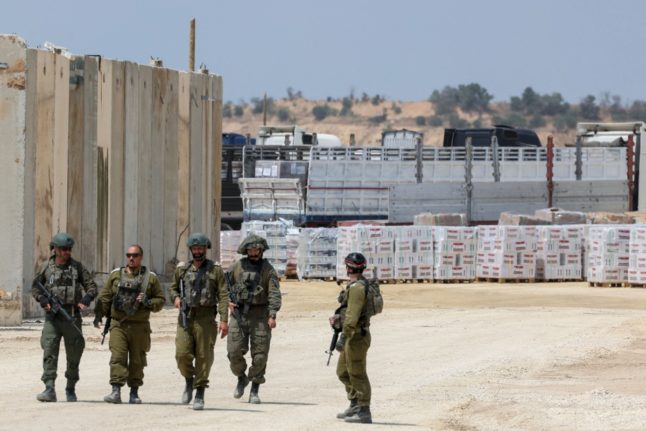Referendums are scheduled for March 3rd, June 9th, September 22nd, and November 24th.
Let’s look at four that are likely to impact all residents of Switzerland, including foreign nationals.
During the first round of referendums, on March 3rd, two retirement-related issues will be at stake.
AHV /AVS -13 old-age pension
This proposal, created by left-wing parties and trade unions calls for the payment of an additional old-age pension, of the same amount as the ‘regular’ AHV/AVS pension received each month.
This would correspond to a monthly raise in pensions of 8.33 percent which, according to supporters, is a necessary increase to compensate for the inflation-driven higher cost of living and lower purchasing power.
The parliament and the Federal Council urge voters to reject the proposal, arguing that such an increase in public spending would not be financially sustainable.
READ ALSO: What is Switzerland’s 13th-month pension plan and why are they voting on it?
For secure and lasting old age provision
This initiative, spearheaded by the liberal-radical party, calls for raising the retirement age for men and women to 66, from the current 65 for men and 64 for women (the latter to go up to 65 in 2025).
Further, the retirement age will be tied to the average life expectancy — that is, it would be automatically raised if life expectancy increases.
The Federal Council and parliament recommend rejecting this measure because basing retirement age on population’s longevity doesn’t take into account social issues or the situation on the labour market.
Premium relief initiative
The cost of the obligatory health insurance has risen significantly over the years, straining the budget of many households.
According to left-wing groups, which are the driving force behind this initiative, premiums have more than doubled, while salaries and pensions have not kept pace with the increases.
They propose that premiums be capped at 10 percent of the disposable income. The average premium burden is currently about 8 percent, but individual households pay significantly more depending on the canton and its premium reduction system, which can be up to 20 percent of their income.
The Federal Council and parliament urge the ‘no’ votes, on the grounds that the federal government would have to pay much more for the premium reductions than before.
The date for the vote on this issue is not yet set, but it will likely be June 9th
Cost brake initiative
This is yet another vote focused on healthcare.
The centrist referendum demands that the Federal Council, parliament, and cantons intervene if healthcare costs rise too much in comparison to wages.
MPs recommend rejecting this initiative and have come up with a plan of their own, which focuses on curbing healthcare costs though measures already outlined in the Health Insurance Act.
The date for this vote has not yet been set.
What about cantonal and municipal referendums?
For Zurich and Geneva, we only know of the ones that will be on the ballot on March 3rd.
In Zurich, people will vote on the proposed extensions of two runways at Zurich Airport.
The project is intended to guarantee better punctuality and safety, as well as improve existing infrastructure, and be more environmentally-friendly.
Zurich voters will also weigh in on the Mythen Park proposal, which demands that the city create a public park in the area from the Mythenquai to the General-Guisan-Quai.
The city council recommends rejecting this initiative because to implement the idea, a tunnel would have to be built under a part of the Mythenquais, which would cost 250 million francs.
According to city officials, “this would result in an awkward relationship between costs and benefits.
As for Geneva, two interesting issues will be voted on — interesting because they have to do with the voting process itself.
Right now. vote organisers have 40 days to collect enough signatures to launch a cantonal referendum, but some days are not ‘valid’ for signature gathering — for instance, from July 15th to August 13th and from December 23rd to January 3rd.
On March 3rd, voters will have an important decision to make: whether to add Easter to this list as well.
Voters will also have to weigh in on whether the number of signatures — defined by a percentage of the voting population — should be reduced.
Another issue on the Geneva ballot is he government-supported Praille-Acacias-Vernets real estate project.
It provides for the creation of 2,230 new housing units, a school, business premises, shops and numerous public facilities.



 Please whitelist us to continue reading.
Please whitelist us to continue reading.
Member comments